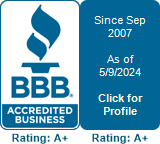How to Reduce Your Small Business Tax Bill
- By Admin
- •
- 12 Oct, 2022
- •
For a small- or medium-sized business owner, taxes may be frustrating. Luckily, you can lower your tax burden as a sole trader by using a variety of tax-saving measures. Explore these preceding strategies to find a means to lower your tax liability for the rest of your life.
Fund a Retirement Plan
You may reduce your tax liability by putting up and supporting a retirement plan for you or your staff. Make sure it is a qualifying plan so you will enjoy the tax breaks. For postponement of taxes on profits until their collection, it needs to be a method accepted by the IRS. IRAs and designated contribution options like 401(k)s and 403(b)s are examples of these retirement funds.
Take Tax Credits to Lower Your Business Income
The national government uses tax credits to incentivize organizations to take action. In turn, there are expectations that society will benefit as a whole. Because of this, you can claim tax credits for employing staff and following policies.
Also, offering health insurance to staff is grounds for a tax credit. Many plans are a component of the general business credit. It works as a broad category, so it's workable that you meet some of its requirements.
Adopt an Accountable Plan
Put in place an accountability plan if you have workers that make business-related purchases. You can compensate them for driving their cars for work-related purposes, for example. This plan can help the firm avoid making payroll taxes and employee revenue taxes. You pay employees' expenditures without requiring them to classify the money as income, and you’ll avoid some payroll taxes like FICA and income taxes.
Additionally, the W-2 statement won’t have a recording of the repayments because the staff members do not get charged for the payments.
Time Your Business Income and Expenses
You may time your revenue by shifting something from one year to the next. But make sure you determine which year you expect to pay the highest taxes first. Examine your costs at the end of every year and prepay part of those sums.
Making purchases can also increase spending and a drop in revenue because it involves loading up on merchandise at the close of the calendar year. This can help ensure you have enough for the inaugural quarter of the following year.
Write Off Bad Debts to Reduce Income
A company using accrual accounting closes at an excellent time to check accounts. First, find the clients who are least likely to pay. To avoid paying taxes on those amounts, you may write off the money they owe as bad debts; consider loans given to customers, merchants, or workers that fail to repay as bad debts. Exclude these debts from your revenue from operations.
Check With a Qualified Tax Advisor
Speak with a tax expert to save taxes before adopting a plan that may impact your business's tax filing. Choose someone who can assist you all year long and not just during tax season. If you ever have an IRS audit, consider hiring an expert to represent you. Choose an agent who has gotten approval from the IRS and who has completed a three-part test to get the accreditation required.
As a small company owner, you may use thoughtful planning to keep much more of your funds in your pocket. This approach will help lower your taxable revenue. Speak with a tax expert to confirm if you are eligible for the possible savings mentioned in this blog. Contact Williams & Associates Tax Services for extra information on how to lower your small business's tax burden. We remain committed to assisting you.












